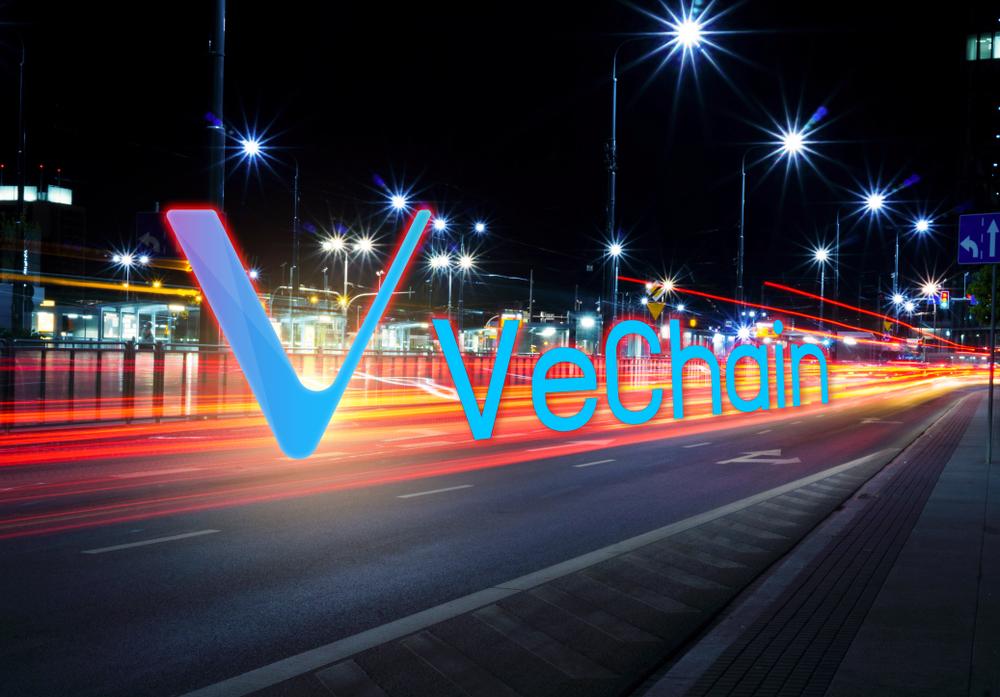
Source: Akarat Phasura – Shutterstock
- The European Parliament and Council are closer to enacting the new battery law, which means that battery manufacturers may have to adopt blockchain technology.
- Meanwhile, this bill represents a good opportunity for VeChain as battery manufacturers can store their battery’s digital passport on the VET blockchain.
According to a tweet by Vechain technology enthusiast (@eisenreich), the European Union is a step closer to enacting new rules for the design, production, and disposal of batteries. According to the EU, these rules will help foster a sustainable economy.
The New Battery Law In The EU
On December 9th, the European Parliament (EP) and the European Council (EC) reached a provisional agreement on the “New Battery Law.” It is the first law to issue “green” prerequisites for the whole product lifecycle for batteries. Meanwhile, the battery law aims to create a circular economy with an evaluation process for all stages of battery production, from design to disposal.
Achille Variati, the EP’s rapporteur, applauded the bill saying that this will benefit the economy and the environment. Variati stated that batteries would work well, become safer, and be easy to remove.
“Our main aim is to create a robust EU recycling sector for mainly lithium and a strong industrial sector. It will be important to Europe’s energy transition and autonomy in years to come. These measures might even become a global benchmark for the world battery market,” the rapporteur added.
On December 29th, @eisenreich, a researcher at VeChain, tweeted a picture of VeChain’s editorial on Twitter. The editorial contained critical aspects of the upcoming battery bill. According to the proposal, EV batteries, rechargeable industrial batteries, and LMT batteries with a capacity above 2kWh must come with a carbon footprint label and declaration.
VeChain Technology Editorial: ‘Is the Era of a Battery “Digital Passport” Coming?’ 🔋
“Based on VeChain technology, key data of the battery life cycle is stored on the blockchain as well as the tracking of used batteries and their recycling and disposal.” ♻️#VeChain #EVs #Tech pic.twitter.com/FGSrzmrS7p
— eisenreich (@eisenreich) December 29, 2022
The measure contained a “minimum recovery rate reuse” for light vehicles, portable, and other kinds of batteries. Furthermore, the bill stipulated that battery manufacturers must reuse a minimum amount of Lead (85%), Nickel (6%), Cobalt (16%), and Lithium (6%) obtained from consumer and manufacturing waste in new batteries. According to the EU, this will ensure the recycling of valuable materials back into the economy.
Another section of the bill clamored for introducing labels and information disclosure for batteries, QR code requirements, and battery digital passports. The battery digital passport will contain information like recyclable content, performance, product capacity, and chemical composition.
A Huge Opportunity For The VET blockchain
In addition, the new law states that the regulation will become effective within 48 months. Also, all EV batteries released to the market must have a digital record and a battery passport. This passport will allow manufacturers and relevant authorities to track the carbon footprint of these batteries.
Meanwhile, this bill represents an excellent opportunity for VeChain. Battery manufacturers can store their battery’s digital passport on the VET blockchain. Battery manufacturers would have to adopt blockchain technology to track their carbon footprints.
According to reports, the EU plans to set a new threshold for the carbon footprint of battery manufacturers by 2027. A VeChain editorial read, “by using VeChain technology, manufacturers can store key data for a battery’s lifecycle on the blockchain. Also, the blockchain will allow for tracking, recycling, and disposal of used batteries.”
Meanwhile, the new battery law is a temporary agreement between the EP and the EC. However, both parties will have to approve the law before it becomes effective formally. One thing is sure – both agencies have finalized the bill’s content. What is left now is its full implementation.













































































Be the first to comment